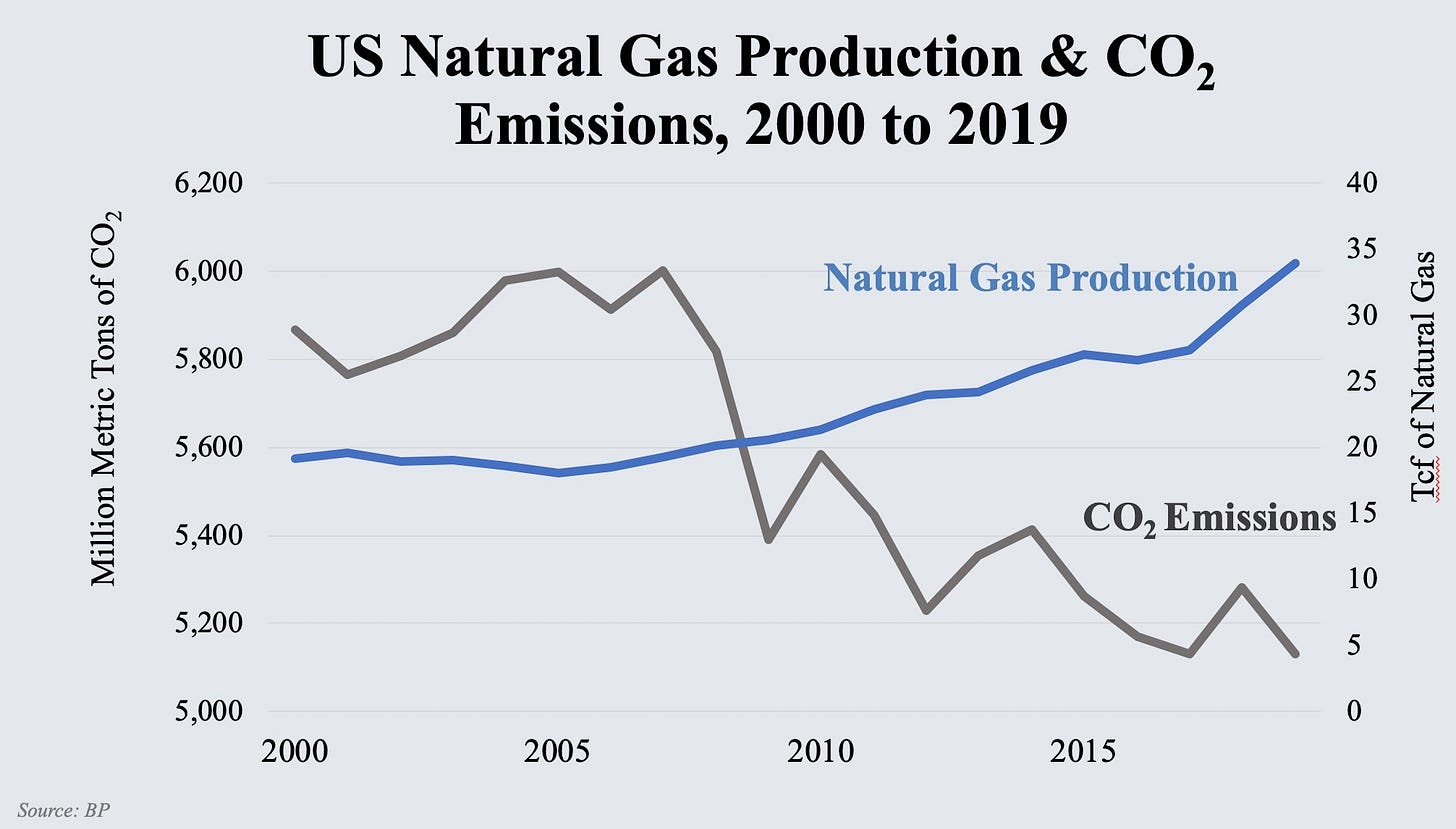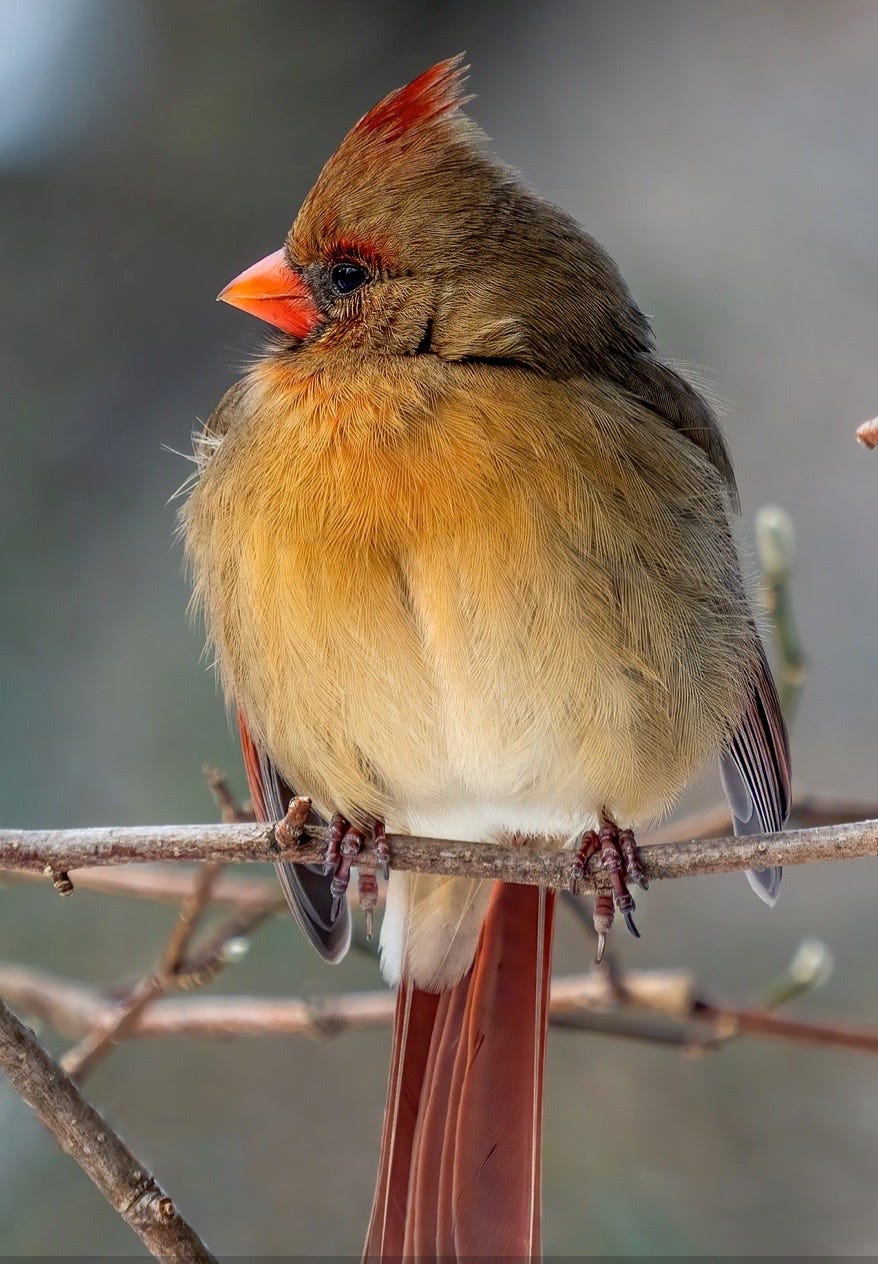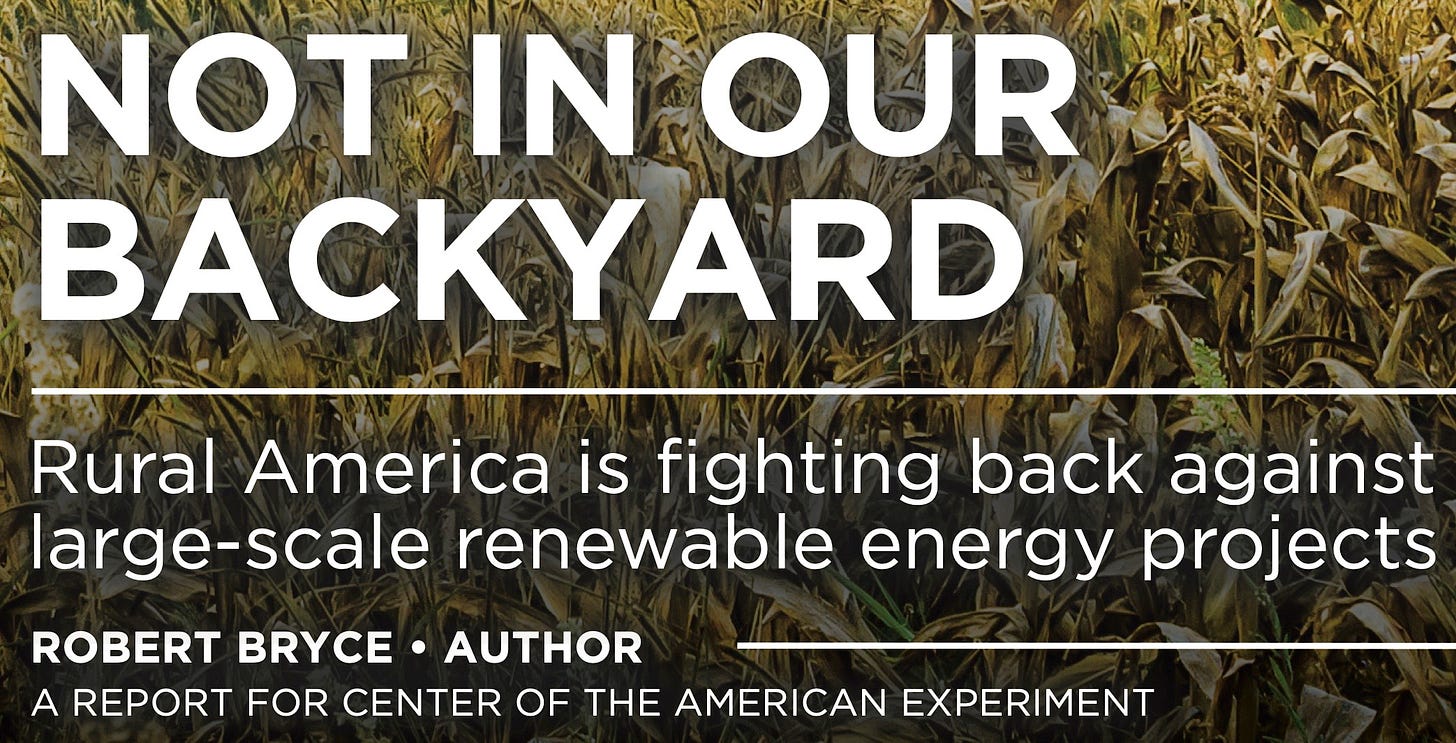Our "epic strategic advantage” on energy, back on the speaking circuit, Cardinalis cardinalis
Nick DeIuliis on the shale gas revolution in Pennyslvania, live speeches!, and the joy of the Northern Cardinal
Some good news this week. Our home improvement projects are done. The contractors have departed. I haven’t been to Home Depot since Tuesday morning and I have to say I don’t miss it. Plus, I’m back on the road giving speeches in front of live audiences, which is a very welcome development. Thus, a short email this week.
Nick DeIuliis, the CEO of CNX Resources Corp. on the Power Hungry Podcast talking about natural gas and his new book, The Leech
My speaking business is picking up
Northern Cardinals are not "ho-hum" birds
Reminders about Not In Our Backyard and Juice


Nick DeIuliis on the podcast talking about the strategic advantage the U.S. has thanks to the shale revolution
In the latest episode of the Power Hungry Podcast, I talk with Nick DeIuliis, the CEO of CNX Resources Corporation, a Pittsburgh-based natural gas producer. DeIuliis is from western Pennsylvania. He told me he has lived his whole life in the region and has seen it go “through a big downturn.” Today, he said Pittsburgh and the surrounding region are thriving and it has seen a return of “traditional manufacturing and energy largely brought about by the natural gas revolution.”
Nick talked about the “façade” of ESG (environmental, social, and governance) and why low-cost energy has given the United States an “epic strategic advantage” over the rest of the world. The low-cost energy that has come about thanks to the shale revolution, has given us a lead over other countries “that we would be foolish not to take full advantage of and utilize to our benefit, whether it is for us is the United States or the state of Pennsylvania, or the region here in the Pittsburgh area and western Pennsylvania.”
He also made an interesting point about how natural gas has helped slash Pennsylvania’s emissions. “If Pennsylvania was a developed nation of its own, it would be the only developed nation that would have ever met the Paris Climate accord targets. And it didn't do that because of government policy, or government intervention, or renewables. It did that because of what natural gas did with respect to growing its share of the Pennsylvania grid and the Pennsylvania economy.”
Nick also talked about the themes in his upcoming book, The Leech: An Indictment of the Evil Sapping America, Depleting Free Enterprise, and Bleeding Producers. “I'm writing this definitely from the perspective of a passion, a passion for the energy industry, a passion for the region that I'm from, and basically, a passion for the middle class.” He continued, saying “anything I can do to support them, promote them, protect them, highlight them, I think there's a duty to do that...I view it as duty, an ethical duty, to speak truth.”
Nick does not mince words. Please give the episode a listen and share it.

Two in-person speeches this week
The country is finally opening up and I am happy to report that I have spent much of the past two days on crowded airplanes and in hotel conference rooms. Yesterday, I presented in Indianapolis at a meeting of ACES Power, an energy-risk management firm that’s headed by my friend, Mike Steffes. ACES works with electric cooperatives across the country. I showed a few slides, including the one above, which shows that as domestic natural gas production has increased, US carbon dioxide emissions have fallen. I then sat down with Mike to talk about the challenges facing electric cooperatives as well as the broader energy landscape under the Biden administration. It was my first speaking engagement in front of a live audience in seven months.
I loved it. There’s nothing like having a live audience and being able to engage with people, to feel their response, to look them in the eye, to hear their laughs, or sense their discomfort. Plus, I was able to do the events without a mask and without having to worry about Covid restrictions. It was glorious.
Today, I’m in Oklahoma City for a presentation to the Oklahoma Energy Producers Alliance. In a few hours, I will be talking to them about the enormous costs of Winter Storm Uri, electricity, and the future of natural gas in Oklahoma and around the world.
I have several more engagements slated for this summer and my fall calendar is filling up. If you are having a conference, company meeting, or another event, and want me to speak about energy, power, innovation, or politics, send me an email. I am passionate about these issues. I’m vaccinated and ready to get back on the speaking circuit.

Cardinalis cardinalis
In 1991, while working for the Austin Chronicle, I did a phone interview with Roger Tory Peterson, who was among the most important naturalists in American history. Peterson, who died in 1996, did more than any other single person to popularize birdwatching. With his pocket-sized Field Guide to the Birds, first published in 1934, Peterson showed regular people the key markings that allowed them to distinguish different species of sparrows, hawks, warblers, and other birds.
I have thought of that interview many times over the past three decades and it often comes to mind when I am actively looking for birds. It also comes to mind when I am at home, or at my desk, focused on other things because Peterson told me “I am paying much more attention to what some people would call ‘ho hum’ birds.” He went on to talk about the joys of seeing house sparrows during his recent trip to New Zealand, “They are very interesting birds, really,” he said.
The Northern Cardinal (Cardinalis cardinalis) is a common visitor to our feeders and birdbaths. And the more I watch them, the more I’m fascinated by them. I see them or hear them nearly every time I walk on Barton Creek. Their call is distinctive. Over the past few years, we have seen many, many, juvenile Cardinals at our feeder, which suggests that there are mating pairs nesting in the woods near our house. According to Audubon the Northern Cardinal “is the official state bird of no fewer than seven eastern states. Abundant in the Southeast, it has been extending its range northward for decades, and it now brightens winter days with its color and its whistled song as far north as southeastern Canada. Feeders stocked with sunflower seeds may have aided its northward spread. West of the Great Plains, the Cardinal is mostly absent, but it is locally common in the desert Southwest.”
I like Cardinals for lots of reasons. I like them because they are the mascot for my favorite baseball team, the St. Louis Cardinals, who, by the way, have some of the coolest uniforms in all of sports. I like them because they are expert fliers and navigate through thick woods with tremendous skill and agility.
I like them because I seldom see a single Cardinal. Instead, I nearly always see them in pairs: a male and a female flying through the woods together, calling, reuniting, and then flitting off again, all the while never separated by more than a few meters. There are varying accounts of their mating habits. One site claims that they mate for life. Another site hedges that claim by saying “Cardinals are predominately monogamous and will mate for life.” Whether they mate for life, or have midlife crises and seek a different mate each year, isn’t the point. Instead, it’s that Cardinals are so common, we see them so often, that it’s tempting to think of them as not being worth our attention. Cardinals may be common. They are not ho-hum.
Want to help?
1. Share this email to your friends and colleagues. Or have them email me so I can add them to my distribution list.
2. Subscribe to the Power Hungry Podcast.
3. Rent or buy Juice on iTunes or Amazon Prime.
4. Buy A Question of Power: Electricity and the Wealth of Nations and give it a positive review.
5. Follow me and Juice on Twitter.
6. Need a speaker for your conference, class, or webinar? Ping me!
Thanks!

A reminder to share this report
I have been pleased with the response to my recent report about land-use conflicts and renewables. "Not In Our Backyard," was published on April 21 by the Center of the American Experiment. The center is also the home of the Renewable Energy Rejection Database, which includes details on the roughly 300 times that local or regional governments have rejected or restricted wind-energy projects. Please share both of them. The only way to bring sanity to the decisions being made by policymakers is to relentlessly pound the facts. Here's a link to the full report. Please share it.
Reminder: You can watch Juice for free on Roku!
If you haven't seen our documentary yet, here's a reminder: you can watch Juice: How Electricity Explains the World, on Roku, for free. Just click this link. If your friends haven't seen it, send them a link. Or if you have a prime membership, you can watch it on Amazon Prime.



